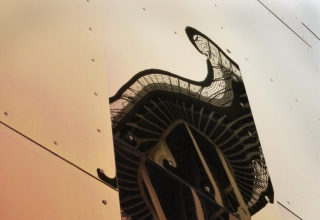
I enjoyed and did really well in school. At that time, girls were not pushed to go to college. Most of the girls I went to school with got married and started raising families. My mom didn’t graduate from high school and our family could not afford to send me to college. When I graduated from high school, I felt stuck. If you didn’t go to college or vocational school, you were left with little options. These options included getting married, which didn’t work for me, or getting an entry level job. I worked for a few months in a jacket factory but knew I wanted something different. My family has a long history of males serving in the military but I had never considered this as an option until an older female cousin enlisted. There was some resistance from family members about her joining but she paved the way for the rest of us! I enlisted in the Army when I was 18.
When deciding my military occupational specialty I did not want to be locked into a traditional female job such as nursing or clerical. The Military Police had just opened up to women and that appealed to my sense of adventure. When I finished my training, I was stationed at Fort Ord which was near Monterey. I walked off the plane and knew right then I wasn’t leaving California. The military was probably the best training that I received in a lot of ways. Going from a little non-diverse town to the military was a real eye-opener for me. Being introduced to different ethnic groups and sub-cultures provided me with a new perspective of the world.
After transitioning out of the service, I went to the community college in Salinas. From there I transferred to the University of California, Santa Cruz, where I majored in psychology. I received the GI Bill and worked full time while attending school. At that point in my life, I thought I wanted to get into family/marriage counseling and work with kids. I had volunteered with the Women’s Crisis Center as an advocate and I really liked working with kids. It dawned on me that often times the children who go into therapy are not “the problem that needed to be fixed” and the real issues resided in the whole family dynamic. I wasn’t sure this was the field for me.
Out of college I applied and accepted a job at the Women’s Crisis Center coordinating a child abuse prevention program. For four years I worked closely with Child Protective Services and the schools. In many ways, that was my favorite job since I felt I was making a difference in the lives of children. I also provided advocacy for rape victims and battered women. I did that for about another four years, both as a volunteer and as paid staff.
At the Women’s Crisis Center, I learned a lot of the lessons about how you work as a team, how you advocate for people who often have no voice, and how legislation really determines the amount of money available for programs. I also learned how organizations that have the same mission compete for limited resources often times in an “ugly” way. I learned that politics drove the process and that there were a lot of people who did not support the work I believed in whole heartedly.
I transitioned from the crisis center and accepted another job with a drug and alcohol counseling agency. I was the first white woman who worked there who did not speak Spanish. This non-profit was located in East Salinas, which was considered the barrio. I worked there for a year, providing substance abuse and domestic diversion counseling. The domestic diversion was really frustrating because it was geared for people who were mandated to go by the courts.
Download Article















